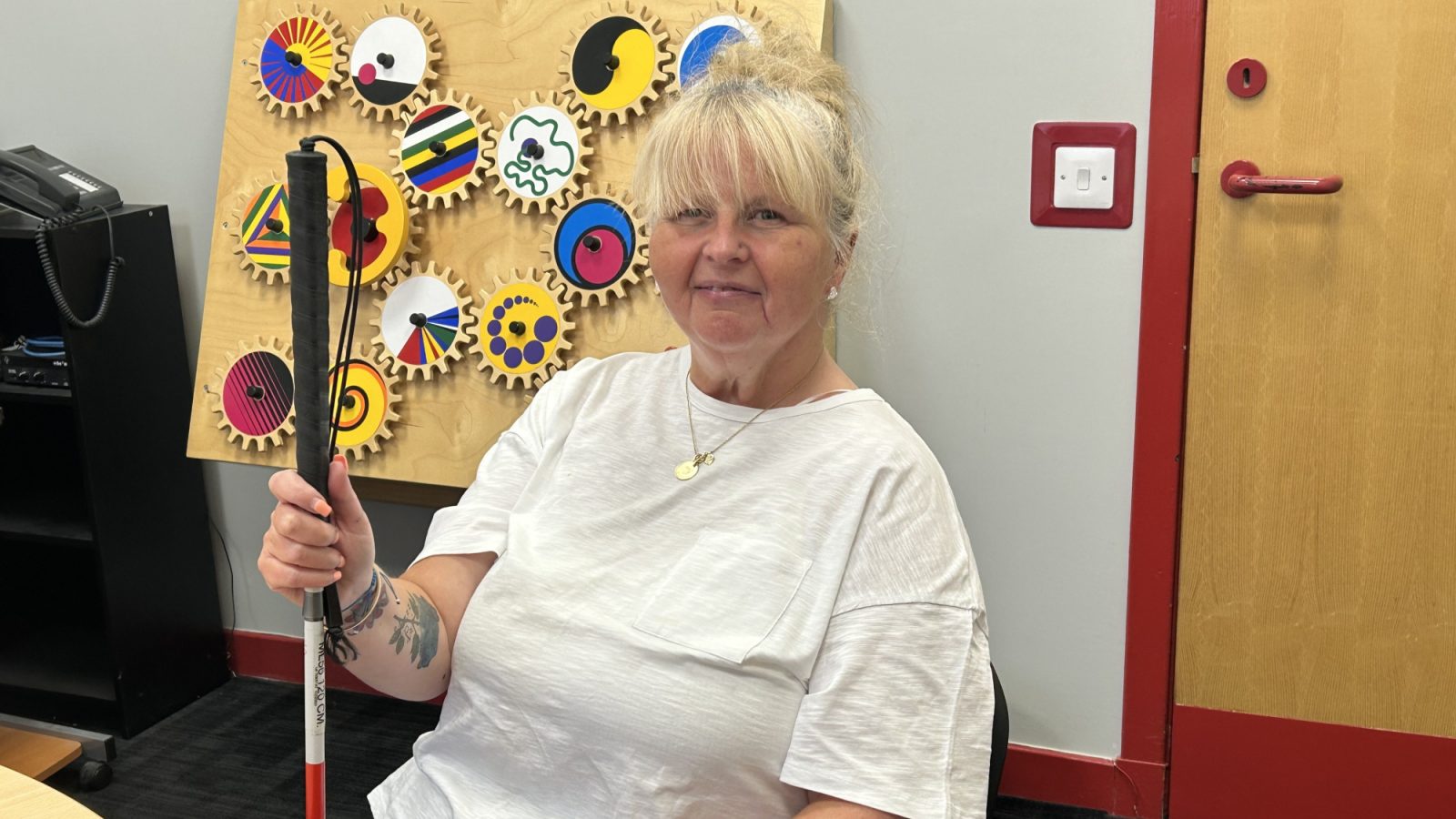An Aberdeen woman with a rare genetic condition that causes both deafness and blindness has praised a North-east charity for helping her regain her confidence and independence.
Susan Charles, 58, from Aberdeen, has lived with hearing loss since she was a child, and as she grew older noticed that her eyesight was becoming progressively worse.
In 1998 she was diagnosed with Usher Syndrome, which causes deafness from birth and Retinitis Pigmentosa (RP), commonly referred to as tunnel vision, which develops later.
Her condition forced her to leave her job in the fishing industry, and she was left increasingly depressed and anxious, becoming reluctant to leave the safety of her own home.
Shortly after this, Susan contacted North East Sensory Services (NESS), then known as Grampian Society for the Blind, which has now been supporting her for almost 30 years.
The charity works with thousands of blind and deaf people, and those with visual and hearing impairments, across Aberdeen, Aberdeenshire, Dundee, Angus and Moray. Its main objective is to help people with sensory loss to live as independently as possible.
Telling her story at the start of Deafblind Awareness Week, Susan said: “I remember my sister noticed one night after we had been at Weightwatchers. It was dark, and I was feeling for the door and the steps, and my sister said, ‘What’s wrong?’ I said: ‘I don’t know, it’s dark’, and I asked her, ‘Do you see that, the door and the steps?’ She said she could see them, and I thought that was weird because I couldn’t.
“I worked for the fishing industry, and I wondered why I was tripping over things in the dark. I went to the doctor, who transferred me to the eye clinic, they looked in the back of my eye and they told me that I’ve got Usher Syndrome.”
She continued: “When my mum passed away in 2012, I just felt lost. I was looking after my dad then, and my sight was getting worse.
“I was using my cane, but kept looking down and I’d start to panic, looking for the kerb. I’m scared of kerbs, I’m scared of steps.
“I lacked confidence going out and meeting people. I was getting really anxious and had fallen a couple of times.
“I spoke to the NESS social worker about how I was feeling, and she put me in touch with the rehab workers to do cane training. The first time I went out with the rehab worker, oh my God, I was so nervous.”

Over the course of many weeks, Susan and her rehab worker gradually built up her confidence with a cane, starting by going around her building and then around her block.
“I used to take the bus down to my dad’s, but I’d stopped because I’d lost confidence and used to panic,” she said.
“So the rehab worker trained me to go on the bus, and with the fieldwork assistant, I was able to take the bus down to my dad’s house.
“It took about three weeks to build up to that, and it felt like a big achievement. If it wasn’t for the rehab worker and fieldwork assistant, I would still be stuck in the house.”
As well as Usher Syndrome, Susan has also experienced a number of other serious health issues over the years which made it more difficult for her to engage with NESS.
Her worsening eyesight has also made it much harder to do things she previously enjoyed, such as reading magazines, going out for a meal, and going to the cinema.
However, she has benefited from lots of support from NESS, including with technology, daily living aids and hearing aid support. The charity also helped her get a magnifier so she can read letters, and talking scales to help her with baking and cooking.
Susan added: “I used to love baking, which I miss, so I’m trying to do it again. I still cook, but I can’t identify colours, so I can’t tell how brown a roast chicken is, so my husband has to check if the chicken is cooked.
“I’m fine doing things in my own home, I still enjoy doing my washing and my housework, I used to be quick doing things, but now I’m very slow.
“I can’t pair socks any more because I can’t see the colours. I like having my kitchen to myself on a Sunday. I send my husband and daughter away so I can stay in there myself, so I don’t bang into them.
“I would like to tell people that if you are bothered by banging into little things or finding it difficult at night or in darkness, go and see your doctor.
“These are early indicators of sight loss. And then don’t be afraid to go to NESS and get some help.”
Carla Marchbank, statutory services manager at NESS, said: “Susan’s inspiring story highlights some of the major challenges people can face when they are deafblind. It also shows that it can be an ever-changing situation, which is why we encourage people to get in touch with us for support whenever they need to.
“We understand that their condition can change, and how they feel about doing certain things can also change.
“Something that once was possible might start to feel more of a challenge, but we can explore ways of restoring confidence, through new strategies, equipment or training, which help people adapt to their new circumstances.”